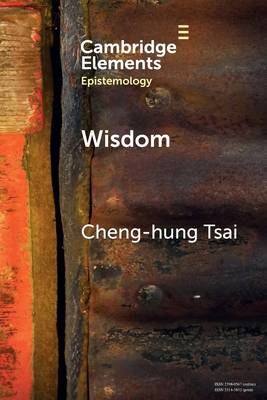
- Afhalen na 1 uur in een winkel met voorraad
- Gratis thuislevering in België vanaf € 30
- Ruim aanbod met 7 miljoen producten
- Afhalen na 1 uur in een winkel met voorraad
- Gratis thuislevering in België vanaf € 30
- Ruim aanbod met 7 miljoen producten
Zoeken
€ 31,95
+ 63 punten
Omschrijving
What is wisdom? What does a wise person know? Can a wise person know how to act and live well without knowing the whys and wherefores of his own action? How is wisdom acquired? This Element addresses questions regarding the nature and acquisition of wisdom by developing and defending a skill theory of wisdom. Specifically, this theory argues that if a person S is wise, then (i) S knows that overall attitude success contributes to or constitutes well-being; (ii) S knows what the best means to achieve well-being are; (iii) S is reliably successful at acting and living well (in light of what S knows); and (iv) S knows why she is successful at acting and living well. The first three sections of this Element develop this theory, and the final two sections defend this theory against two objections to the effect that there are asymmetries between wisdom and skill.
Specificaties
Betrokkenen
- Auteur(s):
- Uitgeverij:
Inhoud
- Aantal bladzijden:
- 75
- Taal:
- Engels
- Reeks:
Eigenschappen
- Productcode (EAN):
- 9781009222891
- Verschijningsdatum:
- 19/01/2023
- Uitvoering:
- Paperback
- Formaat:
- Trade paperback (VS)
- Afmetingen:
- 152 mm x 229 mm
- Gewicht:
- 117 g

Alleen bij Standaard Boekhandel
+ 63 punten op je klantenkaart van Standaard Boekhandel
Beoordelingen
We publiceren alleen reviews die voldoen aan de voorwaarden voor reviews. Bekijk onze voorwaarden voor reviews.











